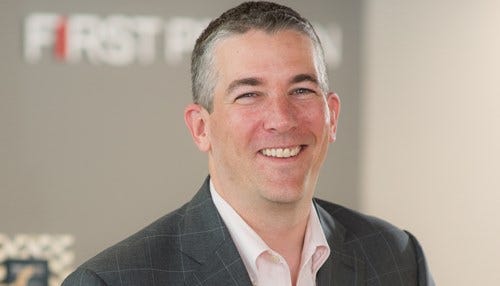Trump And The ACA: Change Remains The Only Constant

Subscriber Benefit
As a subscriber you can listen to articles at work, in the car, or while you work out. Subscribe NowFrom the day it was enacted, the Affordable Care Act – aka, Obamacare – has been more of a question than a statement. The various challenges, tweaks, regulations, and deadline extensions that became a routine aspect of the ACA created a scenario in which uncertainty was the only certainty.
And even though Donald Trump made clear statements about his position on the Affordable Care Act – promising, at times, to make its repeal Job One after he moves into the White House – his victory in the 2016 presidential election actually only continues the uncertainty.
As a result, employers are cautioned not to overreact to the election results, not to take any dramatic steps, and, certainly, not to make any radical changes in their overall people strategies. Instead, they should continue to do what they should have been doing for six years now: Maintain a big-picture people strategy, watch the changing landscape, stay informed and educated about the Act and its changes, and respond as necessary with thoughtful, long-term policies.
Certainly, we can expect changes under President Elect Trump; however, despite his promises to dismantle and replace the ACA, the simple reality is that he is unlikely to do anything substantive to the healthcare act in short order, for two reasons.
Reason #1
First of all, he can’t easily win the numbers game. To truly repeal and replace the ACA, the president would need 60 votes in the Senate, which now has 51 Republicans, to overcome a Democratic filibuster.
Reason #2
Second, even if he did somehow get the votes, the notion that he, or anybody, could make the ACA disappear overnight is simply unrealistic. As the process of its implementation proved, changing the nation’s healthcare system is a long, difficult process. Switching from the current system to something new – or even back to what we had before, which is not what Trump has proposed – would take a very long time.
So, the current healthcare system is not going to go away as of Inauguration Day. As a result, employers should not plan for any immediate, radical change.
What we could expect
On the other hand, it is likely that a Trump administration will begin quickly to chip away at the provisions of the Affordable Care Act. For example, he’s likely to move fast to eliminate what’s known as the Cadillac Tax – the 40% excise tax that affects employer plans exceeding annual premiums of $10,200 for individuals and $27,500 for families – especially since lawmakers on both sides of the aisle have said they want to see it abolished.
Such piecemeal attacks on the Affordable Care Act mean we are likely to see the law altered by degrees rather than through sweeping change. In the short term, we’ll probably continue in the environment we’ve endured for the entire life of the ACA, constantly absorbing minor tweaks and adjustments.
Responding to change
The employers who have fared best through these years of uncertainty have been those who have not reacted dramatically to every new regulation or every updated standard, but who have instead worked with a multi-year benefits plan guided by an overriding people strategy. They understand the value they put on their people, why they provide benefits, and what roles those benefits play in their overall people philosophies.
Certainly, even those employers are unhappy about the ongoing uncertainty surrounding health care, but they aren’t panicking, they aren’t overreacting, and they aren’t scrambling to make wholesale changes to their benefits plans. Instead, they’re sticking to their strategies and watching and waiting.
Sure: Change is coming. But that’s been the paradigm since the ACA was passed. So, relax. Think big picture, stick to your strategy, and adjust as needed. After all, if you’ve made it this far, you certainly can weather what’s ahead.
Paul Ashley is a Managing Director at FirstPerson.
